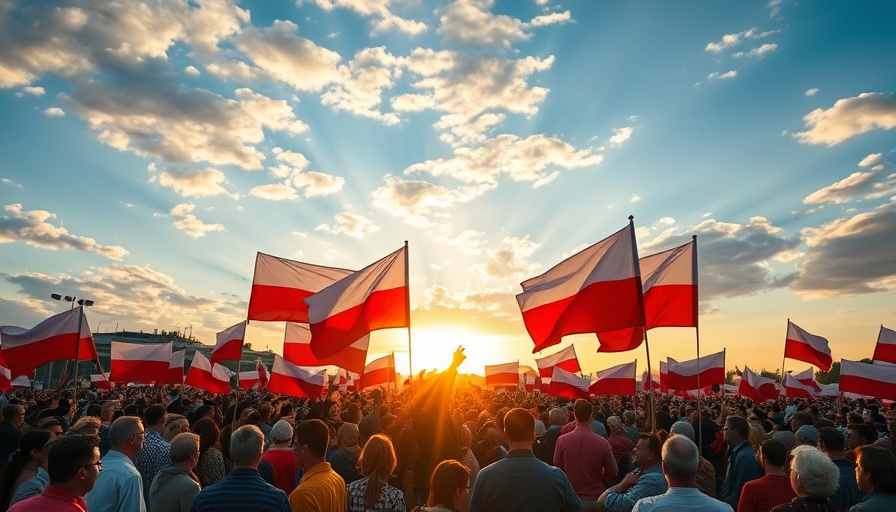
The Clash of Visions in Poland’s Presidential Arena
In a pivotal moment for Poland and indeed Europe, the nation prepares for a closely contested presidential election that has become a focal point of contrasting political ideologies. On one side stands Rafal Trzaskowski, the candidate of the ruling centrists, Civic Coalition (KO), advocating for a pro-European Union stance, emphasizing unity and collaboration. Opposing him is Karol Nawrocki, backed by the nationalist Law and Justice party (PiS), who leans towards a more MAGA-inspired approach, which is characterized by skepticism towards the EU’s influence.
Why This Election Matters
This election is particularly significant, not just for Poland, but for the broader European landscape. With Poland being the largest country in the EU’s eastern wing, the outcomes could set precedents for how Eastern Europe navigates its relationship with Western ideals. On the global stage, neighboring countries like Ukraine and Russia are watching closely, given that Poland plays a critical role in European defense and diplomacy concerning Ukraine's struggle against Russian aggression.
Turnout: The Key to Victory?
The upcoming election has been marked by intense campaigning and rising stakes, as turnout will be crucial in deciding the victor. Polls indicate a tight race, with Trzaskowski holding a slight edge over Nawrocki. Voter engagement can swing the balance, reminding citizens that every vote counts. Thus, achieving a high turnout is pivotal for both candidates, enhancing their chances of steering the nation’s future.
Defense Spending and Foreign Policy: Shared Goals, Different Paths
Both candidates share similar stances on the necessity of increased defense spending, a demand echoed by U.S. President Donald Trump. They both recognize the importance of maintaining strong support for Ukraine amid ongoing military conflict. However, where they diverge sharply is in their vision for Poland’s role within NATO. Trzaskowski views NATO membership as a cornerstone of national security, advocating for Ukraine’s ascension into the alliance. In contrast, Nawrocki has cautioned against this step, reflecting a preference for a more cautious approach that weighs the potential ramifications of further provoking Russia.
Reactions in Europe and Beyond
As Poland stands at this crossroads, reactions from Europe and the United States have been mixed. Some leaders express support for Trzaskowski’s EU-inclined policies, hoping to ensure that Poland remains firmly within the EU’s fold and continues to champion democratic norms and values. Meanwhile, Nawrocki’s nationalist rhetoric sparks concern over a potential drift towards isolationism, which could weaken Europe’s collective resolve against challenges posed by authoritarian regimes.
Domestic Implications: Political and Economic Shifts
The outcome of this election may also trigger fundamental shifts within Poland’s economic strategies, particularly concerning investment and trade. Should Trzaskowski secure a win, the pro-EU environment may bolster investment opportunities, encouraging growth in sectors such as technology and renewable energy. Conversely, Nawrocki’s election could tilt the balance towards more inward-focused economic policies, potentially stifling foreign investment and susceptibility to market fluctuations.
What Lies Ahead for Poland?
With the election only days away, the uncertainty surrounding the results generates a mix of anxiety and anticipation among the populace. Those who prioritize a unified Europe are rallying behind Trzaskowski, while nationalist supporters are fervently backing Nawrocki’s vision for a more sovereign Poland.
Whether Poland will embrace a continuation of its current trajectory towards greater EU integration or pivot towards a more independent and nationalist approach remains to be seen. This election represents more than just a momentary choice; it is a defining moment that could alter the course of Polish identity and its relationship with the broader European community.
 Add Row
Add Row  Add
Add 



Write A Comment